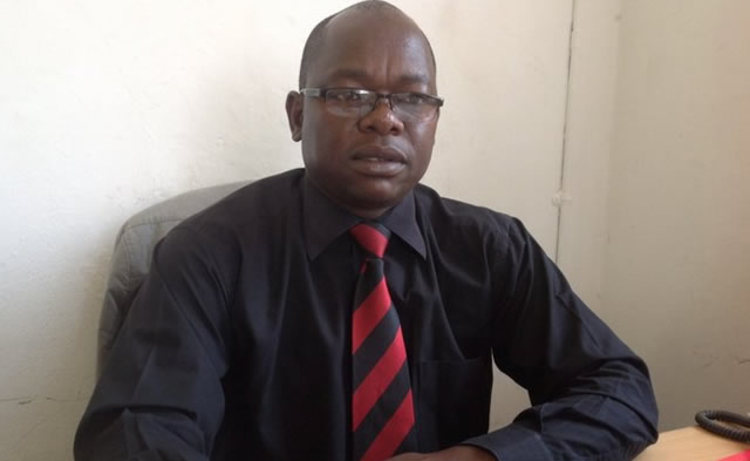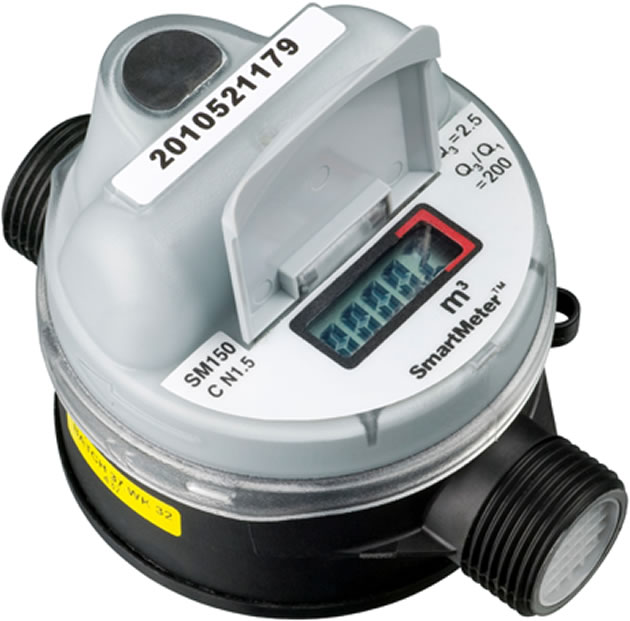‘City of Harare achieved set objectives in 2016’

 Christopher Farai Charamba The Interview —
Christopher Farai Charamba The Interview —
This year has been a particularly busy one for Harare City Council. From dealing with vendors in the city centre, to the rehabilitation of Morton Jaffray Water Treatment Plant, illegal taxi ranks and recently the Pomona dumpsite fire, the city has had its hands full.
The Herald’s Christopher Charamba (CC) spoke to City of Harare’s acting corporate communications manager Michael Chideme (MC) to take stock of what the city achieved in 2016, where it fell short and what it hopes to achieve in the new year.
CC: The year 2016 has come to an end. What would you consider some of the successes and failures for the Harare City Council this year?
MC: One of our objectives this year was to do a pilot project for smart water metering and we have successfully launched this pilot project. Right now we are on the implementation stage and when we get into 2017 we are moving to the installation of prepaid smart meters in all households.
The project will take about five to seven years to complete the whole city. It might actually be longer because Harare is a growing city. We have completed the adjudication and very soon we will be announcing the companies getting the job.
This year we have managed to put up solar lights. We contracted companies to put up these lights at no cost to the city. I think that’s a major achievement because it’s a model that has not been done anywhere else in Zimbabwe.
It is a model that was mooted by Harare and is the brainchild of the capital city which has now spread to other towns and cities. We are happy with it and we have done contracts with a number of companies which we hope will come on-board in order for us to cover the whole city in terms of solar street lighting and smart energy.
We are also nearing the completion of the biogas digester in Mbare. The advantage of this biogas digester is that it will cut down on downtime of our vehicles going to Pomona from Mbare. All the garbage from Mbare Musika will be carted to the new bio-digester and thereby generating electricity to the tune of 100 kVA per day to power the vicinity of Mbare.
It’s a smart energy concept that we have come up with and we are happy. Other local authorities are also trying to copy what we have done, so we are the torch bearers in terms of innovation in that area.
We are also nearing finalisation of the waste energy plant at Pomona. We want to convert all the waste at Pomona into electricity energy and gas. We are happy with such developments as a local authority because it is the innovation, the thinking out of the box that we are doing.
Then in terms of rehabilitation of the Morton Jaffray Water Treatment Plant, we are almost complete and the results are there for everybody to see. The burst water pipes that you are seeing in the area where there was no water previously are a sign of water going there.
This is all happening because of the improvements taking place at Morton Jaffray. We are actually happy that we have concluded another project and now we are going to do the piping. We realised that if we increase the water supply we also need to improve the piping, so that we don’t lose a lot of water.
That one is coming on-board with the African Development Bank. It’s a project that is coming very soon, early next year there should be a lot of digging in Harare.
CC: Speaking on water, there have been reported cases of typhoid which is a water-borne disease. How is the city managing this outbreak?
MC: I would like you to understand one thing. This time of the year, water is not an issue because there is enough water. Some of these matters become issues of hygiene. Where do you buy your mangoes? How do you eat your mango or your fruits? The general hygiene; flies et al.
Of course, we have our issues of sewer and burst sewer pipes, issues of delays in collecting garbage, but all that we are improving. Right now if you notice, we are doing a blitz in various areas to collect all the garbage.
As we speak as a response to the outbreak of water-borne diseases in the city, we are disinfecting all the areas that have potential hazards. We are also de-choking all the sewers in those areas. So, as a local authority our response mechanism is at the level that we want.
CC: What would you consider some of the shortcomings of City of Harare this past year?
MC: I think one of our downturns this year was the fire accident that happened in Sunningdale where three of our officers were injured. We are happy though that they are recovering and one of them is already at home.
But in terms of our response to fires, even if you check our website or our Facebook page, we have had very good comments from the public in terms of how we are responding to such issues. So, we are happy as a local authority.
Another challenge we are facing as a local authority is that of illegal vending. Our call goes to politicians because these vendors belong to various organisations and political parties. They also need to begin to see our viewpoint of the need for order in Harare as the face of Zimbabwe.
Once everyone sees Harare as the face of Zimbabwe, then no one will tolerate what is happening. As an entity, without the collective support of, say Government and political parties, we can’t do much because we need that political support. We need that political muscle to move people from the illegal sites to the legal ones.
We are also looking at the introduction of a mass bus transit system to remove the mushikashika. The mushikashika is a blight on us.
CC: How is the city planning on dealing with this?
MC: We are inviting companies and have been doing this for a while, those with the capital and capacity should come on-board and provide the transport services wanted in Harare. As a local authority we are ready to embrace the mass bus transit system.
CC: Has there been any progress in terms of finding the right companies for this transport system?
MC: Yes, there are companies that have expressed interest, but it’s about mobilisation of funds. We are mobilising the necessary funds to bring the buses because the buses are not bought over the shelf. You need to mobilise funding and convince the supplier of the returns.
CC: Regarding vendors that you mentioned above, there are some formal sites that have been built, one on Seke Road and another along Simon Mazorodze. What efforts are being made to move vendors into these areas and off the streets?
MC: I think the issue we have been facing is resistance from the vendors. Our argument to them is that you make the market. People will come to you because you are there. I will give examples, no one would ever have thought to go shopping at Westgate, but tenants at Westgate have established a market there. At Avondale and at Sam Levy’s Village they have done the same.
I would like to believe that when you stay in Harare you actually go and buy from that market in Chikwanha because of the convenience that it will provide you. Or you will drive to an area like Bhora to buy meat even though there are many butcheries in Harare.
So, these vendors need to establish themselves. People are now going to Dubai which was a desert a few years ago, one with no future. But now everyone wants to go to Dubai because somebody has established a market in Dubai.
It’s all about establishing a market. No one thought people would be going to Mupedzanhamo, but the market is now established and the people are going there.
CC: It was reported though that the market place along Simon Mazorodze has caused flooding for the surrounding residents. How is the city addressing this issue?
MC: We are redesigning the drainage system at that site. We discovered that the contractor on site laid a very small pipe and our pipes, naturally because of our foresight, are big. These were feeding water into the smaller pipes and there was an overflow. But, right now there is redesigning going on to make the pipes correspond.
CC: This year there was a lot of controversy around illegal settlements in places like Hatcliffe and Gunhill. How is the city hoping to cope with this in the new year?
MC: The residents in Gunhill are being moved. As we speak, some are being moved to Mabvuku where they have been allocated permanent stands. But the issue of illegal settlements still remains a thorn in the flesh of the Harare City Council.
Again, we call upon all the participants in this business to take heed and follow proper urban planning. The local authority has the final word on where settlements should be done. People should not just settle willy-nilly because of various reasons.
Right now there is flooding in a number of areas and people have settled on wetlands, now their property is being damaged. So, we are saying if you are staying on a wetland and you have been given an order to vacate, move off.
If the local authority has said move off, we will give you alternative space to go and settle.
CC: Looking forward to 2017, what are some of the objectives that the Harare City Council is hoping to achieve?
MC: Let me start by saying that we are owed over $550 million by our various customers. We have engaged a company called Well Cash Debt Collectors.
On roads, Zinara should come to the party. Motorists in Harare are paying for their vehicle licences, but that money we are not seeing it on the roads. We need that money.
Before the facility was transferred to Zinara we were collecting not less than $8 million per year, but now we are getting nothing more than $2 million or even a million dollars a year. This is not commensurate with the services that we want to provide.










Comments